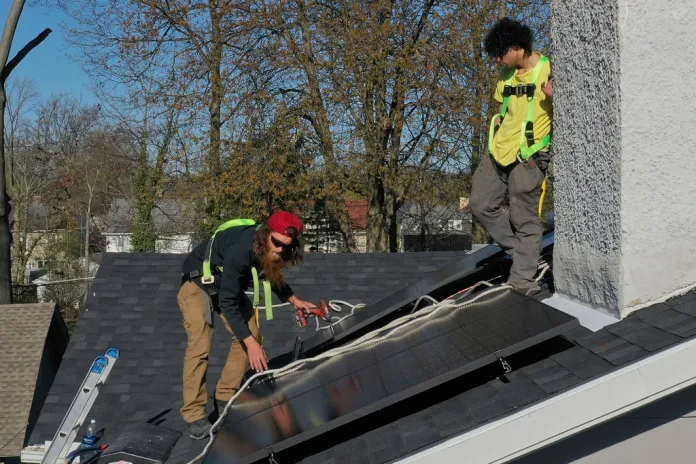Trumps tax credit cuts could undermine pledge to lower energy costs
3 minute readPublished: Saturday, September 13, 2025 at 9:00 am

Tax Credit Cuts Raise Concerns Amid Rising Energy Costs
Recent policy changes have eliminated tax credits designed to incentivize energy-efficient home improvements, sparking debate as electricity prices continue to climb. The repeal of these credits comes as electricity prices have increased by 6.2% this year, with a 0.2% rise in the most recent month, according to the Bureau of Labor Statistics.
The terminated tax credits included the Residential Clean Energy Credit, offering up to 30% of the cost for clean energy system installations, and the Energy Efficient Home Improvement Credit, which provided up to $3,200 annually for various upgrades. These credits are set to expire at the end of the year, requiring homeowners to complete installations by December 31st to qualify.
Advocates of the credits, like Lowell Ungar of the American Council for an Energy-Efficient Economy, highlight their positive impact. Data from 2023 shows that millions of taxpayers utilized these credits, leading to reduced energy bills and improved home comfort. Ungar estimates that families can save over $500 annually due to these improvements. Consumer Reports' Chris Harto noted that these types of incentives are popular among consumers, with strong bipartisan support for energy efficiency standards and government rebates.
However, some, like Alex Muresianu of the Tax Foundation, argue that the credits benefit a limited number of homeowners and have a relatively small fiscal impact. He suggests that repealing these credits can contribute to broader tax cuts.
In response to the changes, advocacy groups like Rewiring America are launching campaigns to inform homeowners about the expiring credits and deadlines. They are seeing a surge in interest from potential clients and small businesses seeking to utilize the credits before they disappear.
BNN's Perspective: While the elimination of these tax credits may offer some fiscal benefits, the move could be seen as counterproductive. With energy costs rising, these incentives provided a tangible way for homeowners to reduce their expenses and invest in more sustainable practices. The decision to remove these credits may ultimately hinder efforts to lower energy costs for consumers.
Keywords: tax credits, energy efficiency, home improvements, electricity prices, clean energy, solar panels, energy-efficient upgrades, homeowners, incentives, consumer spending, energy bills, inflation, government rebates, bipartisan support